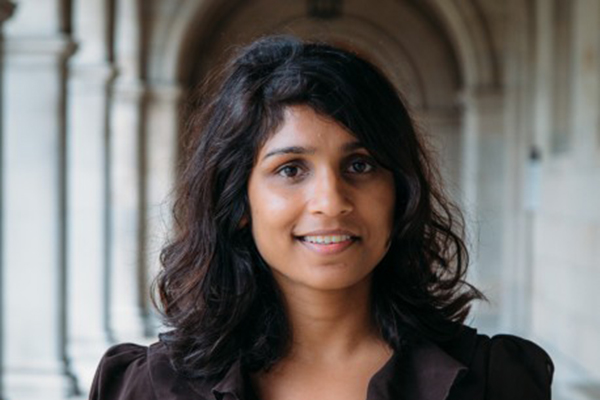Alum Pandey joins Harvard team to study summer storms impact on atmosphere
As part of her postdoctoral fellowship, Apoorva Pandey, a 2019 graduate of the McKelvey School of Engineering, will join the Harvard team to take part in a NASA Earth Venture Project

Tell us about your research experience at WashU.
I worked as a research associate at the Indian Institute of Technology Bombay, which has a strong connection to WashU. There's a scholarship program through the McDonnell International Scholars Academy for students from the Institute. I was not eligible for that, but that's how I learned about WashU and the great air quality and air science research that's happening there.
I was interested in air pollution in India, and one of the biggest sources of that is household emissions from traditional cookstoves. People use a lot of inefficient fuels like wood and crop residues in their house for cooking. We got a small grant to do a field study and measure emissions from these stoves in a rural kitchen in India. There had been little information on real-world cookstove performance and the atmospheric impacts of these emissions, and it was a major project during my PhD.
I didn’t expect it to be so easy to do the things I was interested in. There was a fair bit of independence in coming up with what kind of measurements I wanted to take, how I wanted to take them and where to do the study, but also a lot of support in designing the study and figuring out the logistics within the department.
What kind of research does your post-doc opportunity involve?
I’m working on a NASA Earth Venture Project aimed at understanding the chemistry and the dynamics of the atmosphere. The summertime storms all over the Midwest, part of the North American monsoon system, are major drivers of changes in atmospheric composition. Because of the storms, material that would be lower in the atmosphere — like water vapor (a greenhouse gas) and pollutants — shoot up into higher parts of the atmosphere, which should normally be pristine.
There will be an aircraft measurement campaign starting next summer that will fly over Kansas and measure some of the water vapor, aerosols and chemicals that are important for ozone depletion. There are a lot of teams, including the big Harvard team, that will be on this mission. Parts of this project will go into a model of atmospheric dynamics, which will be used to predict how atmospheric composition will change with the changing climate, as well as discovering processes and feedbacks that we don't know yet.
Why is it important to study the climate?
The global-warming idea becomes abstract for a lot of people, but there are a lot of consequences of climate change that we can experience more immediately, such as the extreme events, the hurricanes and the changing rainfall patterns.
Someone could say "let's cut down CO2, and that should take care of it.” But setting aside the challenges of cutting down greenhouse gas emissions, we don't completely know what we mean by "it." What are the different parts of the climate system, of the Earth system, that are affected? Which factors are driving these changes and how? On what timescale will that change if we can start drastically cutting down greenhouse gas emissions now? And we should, but when will we see benefits and to what extent? So, I think that getting the details of that is important.
What advice would you have for a current student? What would you tell them about how to succeed and get the most of their time here?
Be conscious of when you're putting far more into something than you're getting out of it, and be willing to switch gears. It's easy to get caught in the weeds, to hit a dead end and think that you have to make something work. One of the great things about my adviser, Rajan Chakrabarty, was he knew when to say, "Okay, you're wasting time on this. You should think of what else you can do," but at the same time, he made sure that I did not get discouraged by the roadblocks.
I would also advise current students to start networking earlier than they think is necessary. I say that as someone who's found that hard to do at conferences; but I think most professors and people further in their careers are happy to advise or just have an informal discussion with us.



